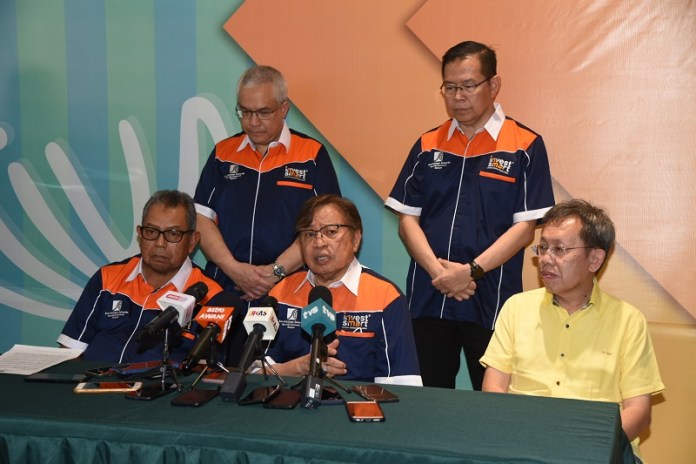
By Karen Bong and Christopher Lidom
KUCHING, Sept 17: Premier of Sarawak Datuk Patinggi Tan Sri Abang Johari Tun Openg has dismissed a claim by a political scientist, who said that the protection of Sarawak and Sabah if both States have 35 per cent proportionate representation in Parliament would only last for seven years after Malaysia Day.
He stressed that the claim was incorrect as the assurance for 35 per cent parliamentary seats for Sarawak and Sabah was clearly spelt out in the Inter-Governmental Committee (IGC) Report.
“It is stated explicitly (in the IGC Report) and not based on the number (of years).
“Under the IGC, the rights and interests of Sabah, Sarawak and Singapore must be protected. This is the assurance specified in the Report which apart from the parliamentary representation, also includes education, Bahasa (Malaysia language) and others,” he said.
Abang Johari highlighted this in a press conference after launching the InvestSmart @Sarawak 2022 by Securities Commission (SC) Malaysia held at VivaCity Megamall here today.
Deputy Premier Dato Sri Dr Sim Kui Hian and SC chairman Dato Sri Dr Awang Adek Hussin were among those present.
As for further action following the recent endorsement of 35 per cent parliamentary seats for Sarawak and Sabah by the MA63 Special Council, the Premier said he is still waiting for feedback from the Federal Cabinet.
“Under MA63 (Special Council), we have agreed in principle that Sarawak and Sabah must hold 35 per cent parliamentary representation, after Singapore exited Malaysia, which is part and parcel of the IGC Report.
“This is to correct the imbalance because the Constitution can be amended with two-third majority. They (Peninsula Malaysia states) can change anything if they want. We just want to have protection,” he explained.
When asked if the matter had “gotten stuck” in the Federal Cabinet, Abang Johari brushed aside the possibility.
This came following a commentary article in Malaysiakini by an Essex-trained political scientist Wong Chin Huat who claimed that he cannot find anything in the Malaysia Agreement 1963 (MA63) to support the promise that Sarawak and Sabah should inherit Singapore’s 15 seats, after it left Malaysia in 1965, to retain the veto bloc against Malaya’s dominance.
Wong however said a promise concerning the parliamentary seats was however found in the 1962 IGC Report which made recommendations that were adopted by MA63.
He referred to Paragraph 19(2) which reads: “Article 46(1) should be amended to increase the numbers of the House of Representatives from one hundred and four to one hundred and fifty-nine (including the fifteen proposed for Singapore). Of the additional members, sixteen should be elected in North Borneo and twenty-four in Sarawak. The proportion that the number of seats allocated respectively to Sarawak and to North Borneo bears to the total number of seats in the House should not be reduced (except by reason of the granting of seats to any other new State) during a period of seven years after Malaysia Day without the concurrence of the Government of the State concerned, and thereafter (except as aforesaid) shall be subject to Article 159(3) of the existing Federal Constitution (which requires bills making amendments to the Constitution to be supported in each House of Parliament by the votes of not less than two-thirds of the total number of members of that House).”
With that, Wong claimed that the facts are crystal clear, in that firstly, Singapore was never lumped together with Sabah (North Borneo) and Sarawak in seat allocation, hence the proportion guaranteed was only “North Borneo’s 16” + “Sarawak’s 24” divided by “Malaysia’s 159”, ie, 40/159 or 25.16 per cent.
“And secondly, this 25.16 per cent proportion was protected for only seven years after Malaysia Day. Hence, the quarter proportion had expired after Sept 16, 1970, and its continued adherence for most of the time after 1970 was driven by political goodwill, not by legal obligation,” he opined. — DayakDaily








